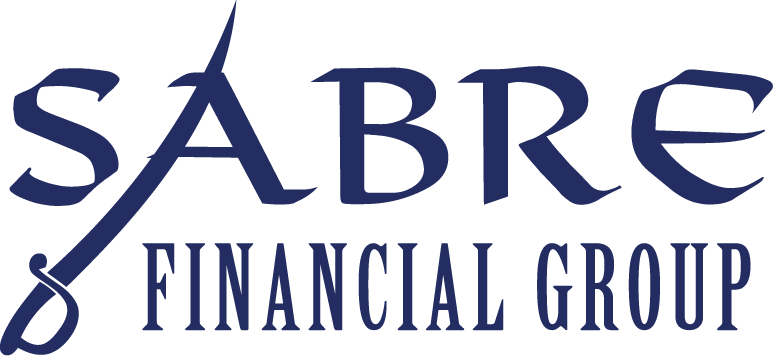Have you considered expanding by buying a business? Although your small or medium-sized business is growing organically, purchasing another business or acquisition target company can exponentially increase revenue. This can also boost profits and company value. But what type of business should you buy? And how might you find good companies that match your interests?
This blog will discuss 1) the potential benefits of a business acquisition strategy, 2) how to define acquisition target criteria, and 3) how to initiate an acquisition target search. Our next blog then will address how to proceed through an acquisition process once one or more targets have been identified.
Why Should You Buy a Business?

There are many reasons why people buy businesses – most particularly that starting and building one from scratch is not easy at all.
- Established businesses have a revenue stream to cover operational costs.
- They have a solid foundation in their supply chain, accounting flows, and systems, so their processes and procedures are ready to be built upon.
- They have an existing customer base, so you do not have to make a huge marketing investment to build a book of business.
- Overall, you can avoid the struggle of the start-up phase when purchasing an existing one. This leaves you time and energy to focus on improving your business model to succeed even further.
How Should You Define Your Investment Criteria?
If you are looking to grow your business through acquisition, there are several considerations that should help you to narrow and define your search.
- What type of business do you want to buy? – Are you looking for a new product or service line? A new geographic market or client demographic to leverage and accelerate your existing business model? A successful acquisition target company that is running well but may be expensive, or a struggling company that you feel you can improve? Thousands of companies are on the market, so first you must define your investment criteria.
- What is your budget? – The next step is to determine your budget. How much cash do you have available for the deal? What level of external financing can you secure from friends, family, banks, or others?
- How much time and commitment do you have to run the company? – Finally, it is essential to consider who will integrate and manage the new company after it is acquired. Are there individuals in your existing organization that can operate and run the company? Who will handle sales and manage customer relationships? Who will handle the financial and other administrative functions? Will the exiting owner or management team need to remain in place for a transition period? Will they need to stay indefinitely to ensure success in the future?
Once you have defined your investment criteria, then you will want to define the nature of your acquisition target search. There are two primary approaches you may consider. An on-market (public or listed) search, and/or an off-market (private or unlisted) search.
What is an On-Market Search?
On-market (public) searches involve a review of opportunities listed publicly by business brokers, brokerage platforms, and online business marketplaces.
Many websites have listings, so there are an abundance of deals and opportunities for buyers to review. Most of the time, businesses can be filtered by industry, geography, company size, and other criteria, giving you a quick overview of which businesses may be in line with your interests. Depending on where you do your on-market search, it is common to see the asking price, gross profit, revenue, and cash flow before requesting more information. The asking price usually is transparent. And details about the acquisition target company will provide you with a high-level view of the business’s profile
There are, however, certain challenges and disadvantages with an on-market search. There is more competition among buyers when purchasing a business through an on-market search. Deals may be taken off the table quickly, so there can be less room for negotiation and less time to analyze deals when you find a business that fits your criteria. And for similar reasons, it may be that many of the listed opportunities are no longer available – already sold or secured by a letter-of-intent from a potential buyer – and this can create a frustrating and time-consuming process.
What is an Off-Market Search?
Off-market (private) searches involve a direct outreach to the owners or management team of companies that fit within a defined criteria but that are not listed for sale. While many of the targeted companies may not respond or may decline interest, a small percentage (maybe 4-8%) may indicate they are open to a conversation. This small percentage may be willing to discuss selling their company.
While it takes time and a disciplined process to identify and reach these potential sellers, the resulting benefit can be significant.
- Usually there is little to no price competition from other buyers and less need to rush forward.
- The process also tends to be more personal such that a better and warmer connection can be established with the seller, allowing for more room for negotiation and understanding between the two parties
As noted above, though, an off-market search requires considerably more time, resources, and expertise. As a buyer, you may need to commit substantially more of your own time. Or engage with an experienced firm or professional who can guide and lead the process.
Which Financial Professional Can Help You Through the Process?
Ultimately, whether you choose to buy a business via an on-market or off-market search, it can be a challenging process that may benefit from a business broker or an M&A Advisor. These individuals can leverage their existing relationships and expertise to guide you through the search process. They ensure you have a stream of deal flow to execute your business acquisition goals.
An M&A Advisor could be a great addition if you are not comfortable with how to run a search process and/or if you want to expand your own bandwidth and extend your reach. An experienced advisor can help plan you to define your investment criteria, research prospective companies, complete due diligence, close the deal, and even integrate the firm into your business. Working with an M&A Advisor can guide you from sourcing acquisition targets through funding and closure of the deal and help you make the best choices along the way.
Let us Help You Through the Acquisition Process
Sabre Financial Group has substantial knowledge and expertise with small business and mid-market acquisition process and strategy. Our team has worked with dozens of companies across various industries. We have a wealth of knowledge in navigating complex issues that arise throughout the acquisition process.
We have relationships with brokers, attorneys, and industry consultants. This ensures you have all the information you need to make the best decision for your company. Our team can assist you every step of the way to help you make your acquisition dreams a successful reality.
Please contact us today to schedule a consultation with our team.

